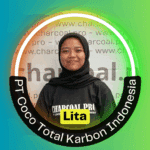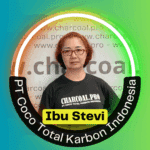Table of Contents
Complete information on export documents for coconut charcoal briquette buyers. *update for 2025
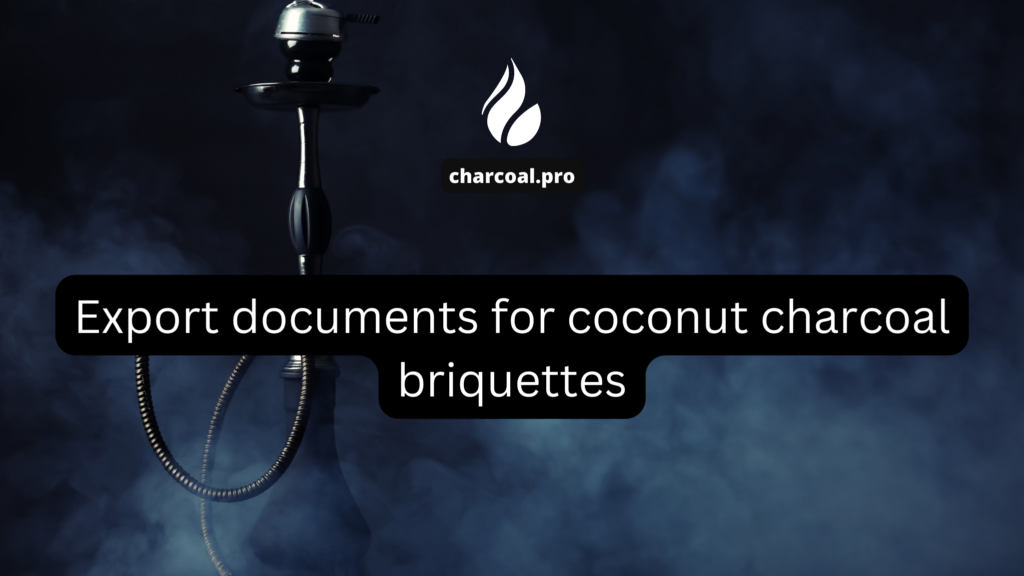
This article is updated and valid for 2025.
Buying coconut charcoal is not only buying the actual product but also arranging export & import documentation for customs and transportation. What are the most important documents you have to pay attention to:
First of all, the seller of charcoal has to provide you with the following documents:
- A certificate of Origin or COO – is an important international export document that certifies that your coconut charcoal is wholly obtained, produced, and manufactured in Indonesia. The issuing COO is the General Directorate of Foreign Trade in Indonesia.
Notice that coconut manufacturers cannot issue this document by themselves. COO is printed on stamped paper with a registered number. This document is requested by customs in your country. There are several types of COO used for coconut charcoal export:
- Certificate of Origin Form A: If you are bringing coconut charcoal to Canada, Jepang, Russia, Europe, the USA, and Turkey, the original copy of this COO is light green.
- Certificate of Origin Form D: is for ASEAN countries such as Brunei, Malaysia, Singapore, Vietnam, Philippines, and Thailand. The original copy of this COO is red.
COO in Indonesia is issued post-factum, i.e., after the ship sails from the harbor. Usually, it takes 1-2 days to issue this document. The cost of issuing is 15 USD.
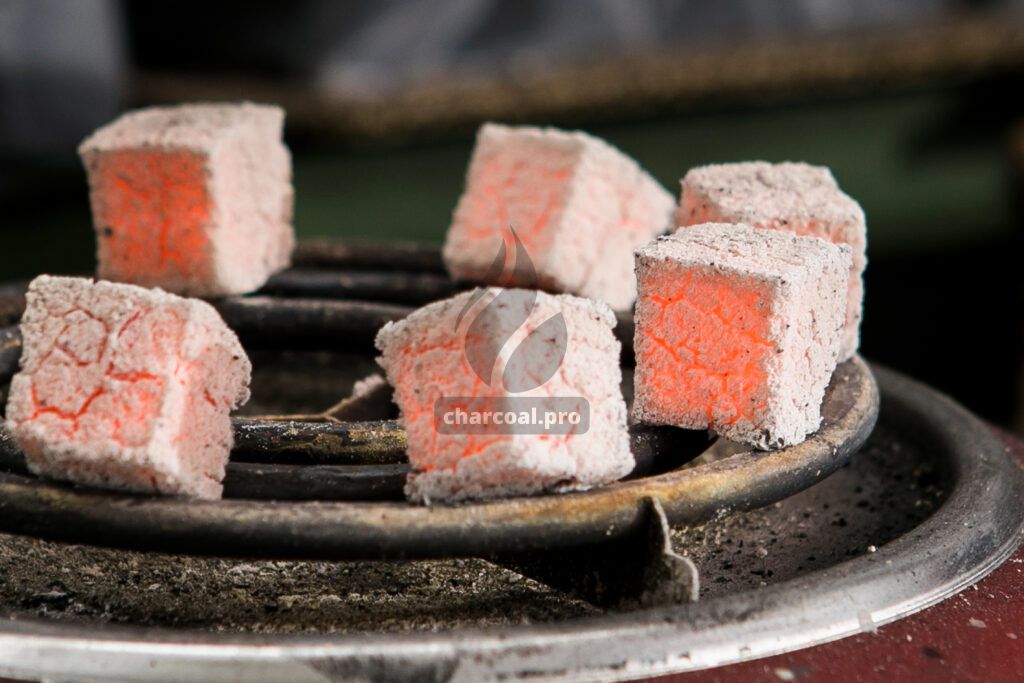
2. Bill of lading or B/L – is a document issued by a carrier to acknowledge receipt of cargo for shipment from Indonesia. Basically, it is proof that coconut charcoal was shipped. You must show B/L to customs in your country to receive the goods. Without B/L, you cannot receive charcoal in the country of arrival.
Usually, the coconut charcoal manufacturer sends you the original B/L via DHL after receiving the final payment. Another option is to perform a “Telex Release” – in this case, you get email/electronic confirmation and no actual papers.
B/L can be issued by the carrier (Maersk, OOCL, MSC, Evergreen, or others) or by a local transportation broker. It is important for you to get B/L issued by the carrier, as you can check the status of your container online on the carrier’s website.
B/L from a transportation broker is usually issued one day after a container of charcoal is delivered to the port. Carrier B/L is issued one week later. This is the most important document for exporting and importing coconut charcoal.
The receiving party in B/L should be your company or the customs broker in your country.
3. MSDS—A Material Safety Data Sheet is a standard document issued by a surveyor or coconut charcoal supplier. It contains data on how to handle coconut charcoal cargo during transportation. An example of an MSDS for coconut charcoal can be found at this link.
4. Invoice and Packing list – basically standard commercial invoice. The packing list is a description of goods, i.e., how many boxes, weights, and pallets of charcoal are in a container. Those documents are important for your customs officers and the tax department in your country. The invoice & Packing list is issued by the charcoal factory.
Additional documents.
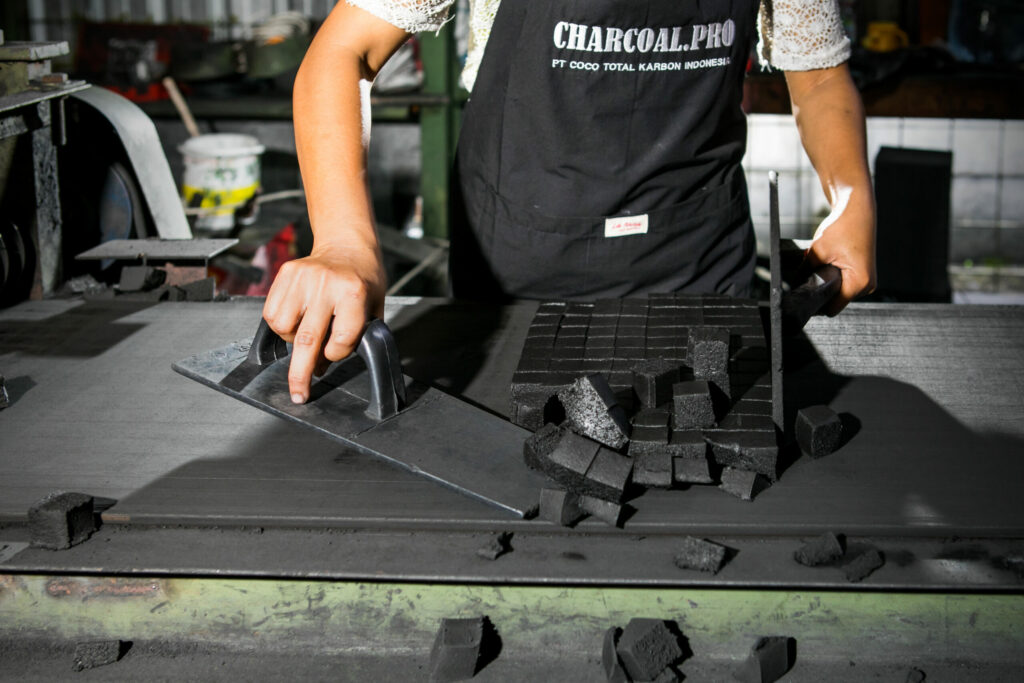
It is good to have an independent surveyor check the coconut charcoal. There are several international and reliable surveyors in Indonesia. To check coconut charcoal briquettes, I recommend you use Beckjorindo, SGS, or Intertek. Those surveyors are professional and have a good SOP for checking the quality and quantity of the coconut charcoal cargo.
The surveyor’s fee for coconut charcoal is about 400-600 USD, not including laboratory analysis. Using a professional surveyor is a good way to ensure that your charcoal shipment is free from surprises.
Sales contract. Signing a sales contract is a good way to protect you from scams in Indonesia. Most coconut manufacturers are solid and trustworthy people, but there are also several guys who pretend to be a charcoal factory when they are not. So, having a sales contract to buy charcoal is a legal way to protect yourself.
A sample sales contract for coconut charcoal for shisha can be downloaded here.
Important update for 2025
Please pay attention that most coconut charcoal briquette factories and suppliers sell their products in two ways:
- As for actual “coconut charcoal briquettes with HS Code: 4402.90
- Under the name: “coconut product,” such as desiccated coconut or others
The right way to export charcoal briquettes is to use HS Code 4402.90, which is the actual name of “coconut charcoal briquettes.” However, if you use it, shipping companies will treat you as “Dangerous Goods.”
Not all shipping lines accept carrying Dangerous Goods. Besides it you will be requested (or your charcoal factory) to provide additional shipping documents:
- SHT – Self-Heating Test Report. An additional laboratory test, made by the independent surveyor, shows that your coconut charcoal is not self-flammable. The cost of SHT in Indonesia in 2020 is 185 – 230 USD. The time to get this certificate is 2-3 days. The factory has to send charcoal briquette samples to the lab and wait for the official report.
- ROA – Report of Analysis – similar to SHT documents issued by the independent laboratory. The cost of the ROA is 125 – 150 USD
An example of an SHT certificate can be found here.
Both of those documents are required for each shipment of Dangerous Goods such as coconut charcoal briquettes.
Your coconut charcoal factory will most likely ask you to cover those costs. Besides it, you will have “fun” finding the carrier (feeder ship) that will bring your charcoal from Surabaya or Semarang to the mother vessel. Most feeders are not allowed to take dangerous goods.
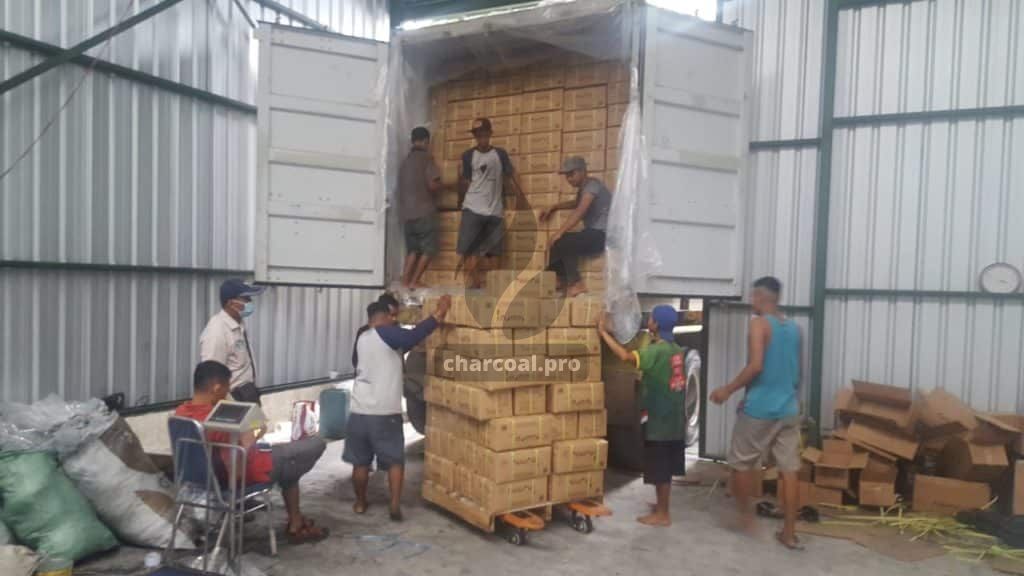
For example, OOCL – has only one feeder per month that can carry Dangerous Goods (coconut charcoal briquettes) from the port of Surabaya
On the other hand, you can always claim your goods as a “coconut product,” not charcoal. There is a risk as you are lying to the carrier and customs. But at the same time, you do not need to declare it as Dangerous Goods, and it is much easier to find a feeder ship. There are also no charges for SHT or ROA.
2020 update for the documents for the Australian market
There are several additional documents for Australian customers. Australian government requested to provide Fumigation with the level of AQIS – Australian Fumigation Accreditation Scheme.
Based on this AQIS, your container has to be fumigated once every 24 hours at the port. Please remember this when you order trucking from the charcoal factory to the departure port.
2023-2024 update for the documents for the Australian market
Aqis fumigation is no longer needed for the Australian market.
Sales contract for buying coconut charcoal briquettes from the factory in Indonesia
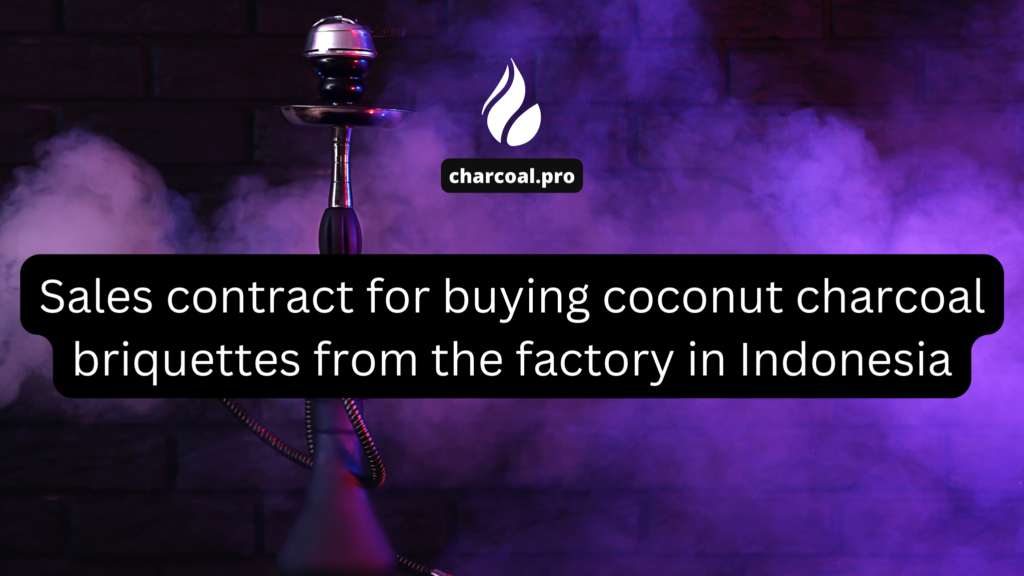
But if a new buyer comes to me, I recommend signing the coconut charcoal sales contract.
You need a sales contract to protect your purchase of charcoal in a legal way. If something goes wrong, you can contact the Indonesian police or arbitrage to resolve the issue. Without a contract – you are risking a lot.
What should be written in the contract? The sales contract for coconut charcoal is different from other sales contracts.
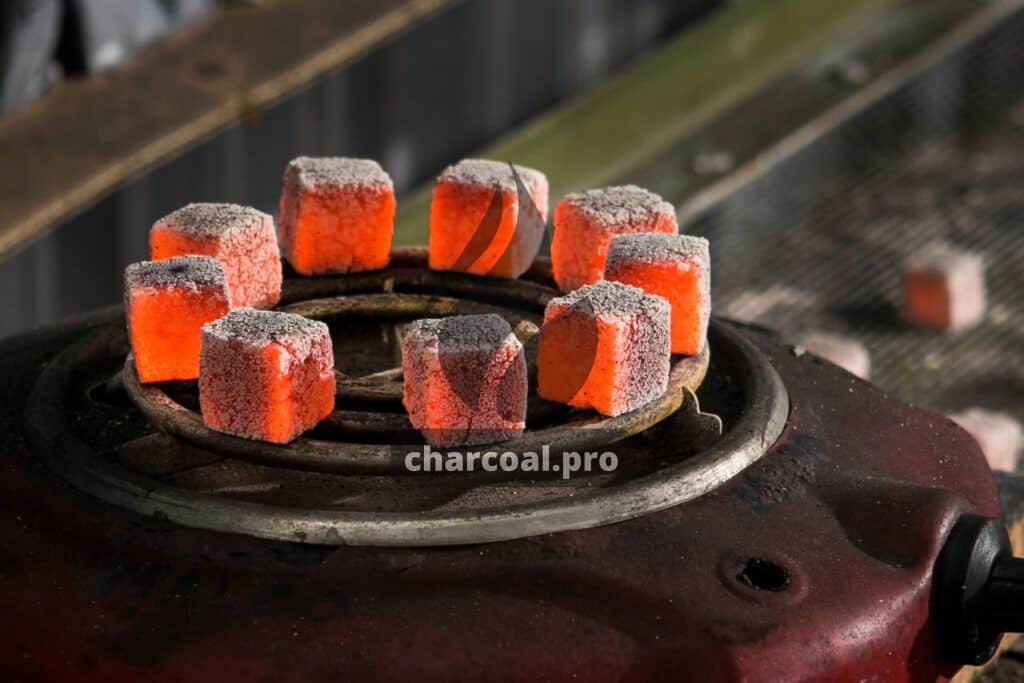
- First of all, you have to write down the specification for the coconut charcoal. With saying what is the max or min value for each position?
- What is the volume of the purchase of coconut charcoal? Do you buy 20 tons of charcoal or do you buy 2000 boxes? How many kgs are in each box? How many cubes of coconut charcoal are in each kg? What is the box design? What is the weight of the master box?
- What are the payment terms? How much is the down payment for buying coconut charcoal? How do you pay the rest? This is an important part as many buyers misunderstand the payment procedure.
For example, the coconut charcoal manufacturer proposed a 50% down payment, and the rest were against the documents. What does it mean? The first part (down payment) is clear. You transfer 50% of the invoice to the charcoal factory.
But what about finalizing payment? When should you transfer the other 50%? If the shipping of charcoal takes 30 days, on what day should you transfer the payment? If the seller of charcoal sends you B/L after ten days – he expects you to pay immediately. But you may think of paying for goods after arrival at your port in 29 days. This is a small issue that causes a big misunderstanding in the coconut charcoal business. You should write clearly on what day you pay money to the factory. - Clear address of the coconut charcoal factory. Are you buying from a factory or a private person? What is the real address of the factory? Who is the exporter – your factory or their customs broker? What is the legal name of the coconut charcoal supplier? In Indonesia, it is easy to check if the company really exists or if it is just a fake factory. Go to https://ahu.go.id/profil-pt and write down the factory’s legal name. If the company is a real and legal entity – it will be on the list. If you cannot find your company’s legal name – it is a fake coconut charcoal factory – be very careful.
- The time frame of coconut charcoal production and shipping. You should write down the maximum time frame (lead time) for coconut charcoal production. Sometimes factories do not have stock of coconut shells. Or they are working overcapacity. Ask the charcoal factory how long it will take to produce if you buy charcoal in a specific date range. Do not forget to write what is the penalty if a coconut charcoal factory is late to produce charcoal.
- Do not forget to sign the contract. Pay attention to who is signing the contract – is it the director, sales manager, or just a private person? Try to find him on Facebook or Instagram to check if he is related to this company or the coconut charcoal business.
You can find a sales contract for coconut charcoal for hookah or shisha here. Just copy and paste it and use it for your purchase.
MSDS for Coconut Charcoal Briquettes for Shisha & Hookah
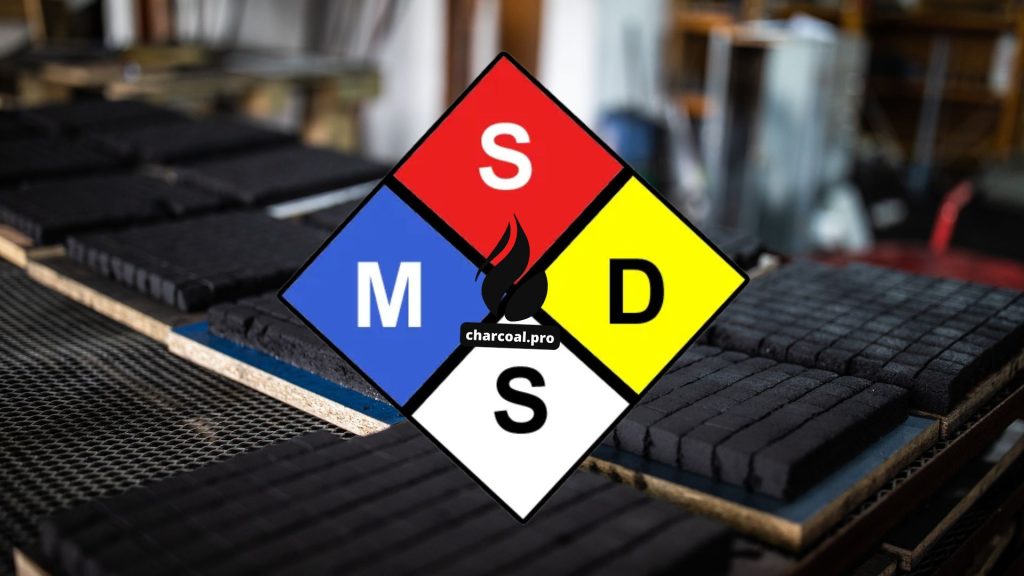
MSDS is Material Data Safety Sheet – a document made by the charcoal factory.
Each factory shell has its own MSDS.
The document is usually required by the shipping line before you book the container.
The main purpose of MSDS is to describe safety measures on how to handle and send shisha charcoal.
Please note, that coconut charcoal for shisha is a safe product, so basically there is no limitation on transport or handling it.
It is not an easily flammable substance. To make it fire you have to put charcoal on an open fire for at least 5 minutes.
Following is the link to our MSDS document
If you need to send coconut charcoal via DHL or airlines (as a sample) it is recommended to use the following MSDS for coconut charcoal.
If you need more information on our latest MSDS or SHT please contact us via WhatsApp or Email
SHT (Self Heating Test) for Coconut Charcoal for Shisha & Hookah
ROA – Result of Analysis Coconut Charcoal for Shisha
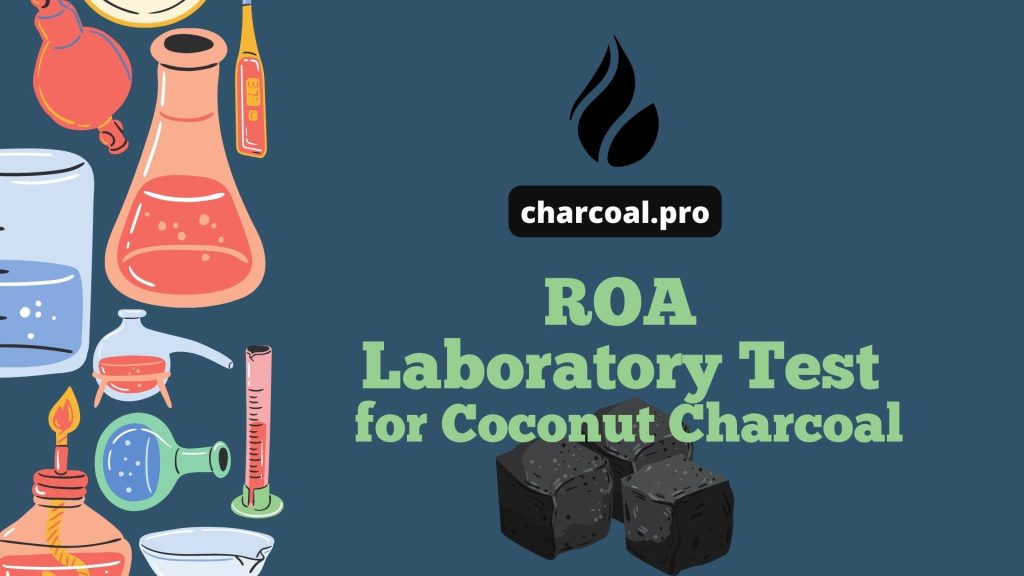
ROA is an essential document that proves the quality of coconut charcoal for shisha.
There are several independent laboratories that perform ROA, especially for coconut charcoal.
One of the best and most accurate is Beckjorindo Laboratory. They are located in several cities in Indonesia, like Surabaya, Lampung, and Semarang.
Most of our tests we perform in Becjorindo Laboratory in Surabaya and Semarang.
It takes about 2-3 days to check charcoal in the laboratory.
We regularly send our charcoal samples to the laboratory for independent analysis of charcoal. This allows us to be 100% sure of the quality of the charcoal.
The most important part of ROA is ash content. It shows how much ash is left after charcoal burned out.
The best practice for Ultra quality charcoal is 1.8 to 2.0% of ash content.
Super Premium is 2.0-2.2% ash content. Above 2.3% is Premium type and above 2.5% is Medium type.
Besides it we can check Moisture content, Fixed carbon, and volatile matter.
If you need more info on ROA please contact us via WhatsApp or Email.
Coconut charcoal briquettes HS Code, CAS, IMO and UN number
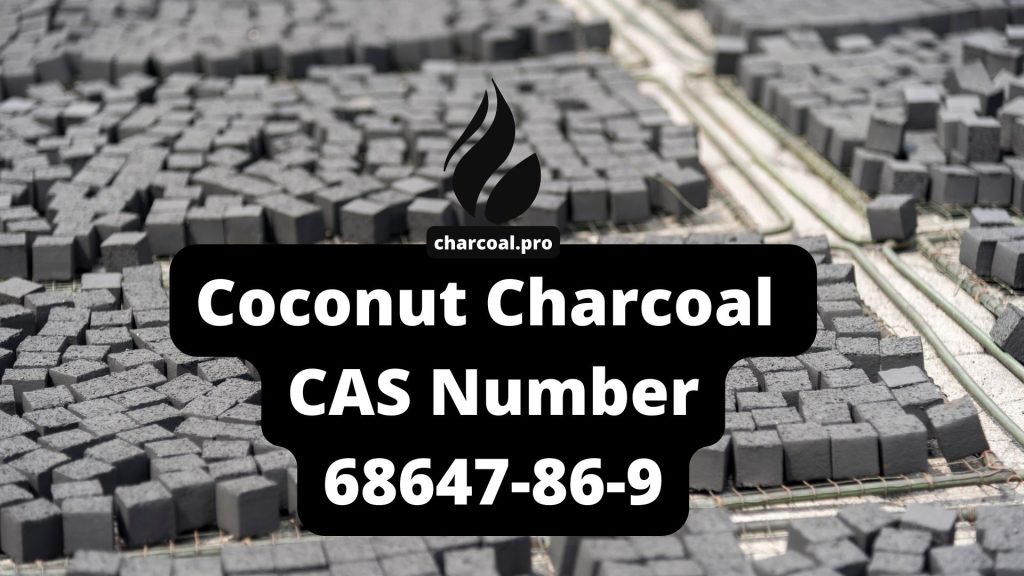
Coconut charcoal briquettes’ CAS number is 68647-86-9.
Actually, it is the same CAS number as for coconut shell charcoal.
Please note that if you use CAS number 7440-44-0 it means that this is not a coconut shell charcoal briquette, but activated charcoal.
- EC number: 271-974-4
- EC Name: Charcoal, coconut shell
- Molecular formula: C
- IUPAC Name: carbon
- Composition: UVCB
- Origin: Organic
- COMMODITY: coconut charcoal briquettes
- HS CODE: 44029010
- IMO NUMBER: 4.2
- UN NUMBER: 1361
